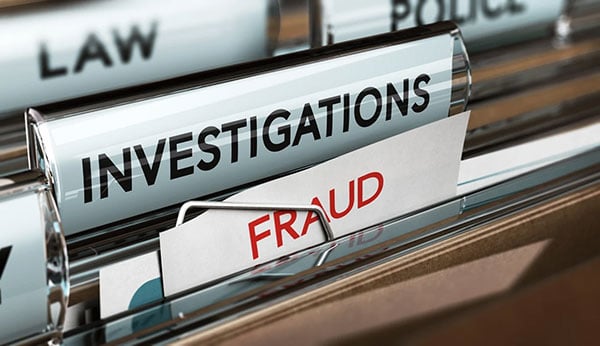All too often, HOAs are the unfortunate targets of theft, fraud, and embezzlement. In some cases, embezzlement and other fraud cases last for an average of around 18 months--but some cases can drag on for more than four years! If you want to prevent your HOA from making the victims list, make sure you're familiar with the most common signs of theft, fraud, and embezzlement as well as the protections you can put in place in order to protect your homeowners and your organization.
What to Watch For
If you're the member of an HOA board, there are several key signs that you should keep an eye out for in order to prevent yourself from being a long-term victim of fraud. If any of these signs are noticed, you should delve deeper into the organization's finances to be sure nothing more is amiss.
Bank deposits are significantly delayed. You know when the deposit should have been made, but it's not appearing at the bank in time. You may notice deposits appearing very late or that a deposit hasn't been made when you're sure that it should have been.
Single-use vendors are receiving regular payments from the HOA. Someone who is familiar with the vendors used regularly by the HOA should examine bank records or receipt books on a regular basis to make sure that the payments add up. If you notice that many payments are being made to a vendor that the HOA used only a single time, it's a surefire sign that there's something more going on.
Vendors' addresses don't add up. It may be that a vendor has only a P.O. Box for an address, which is unusual for most contractors. In other cases, the vendor may have the same address as a member of the board or the HOA. Unless you've deliberately hired someone from inside the association, there's no reason for the addresses to match.
The petty cash fund disappears on a regular basis. This is particularly troublesome if you have a large petty cash fund and you know that it's disappeared more than once.
'Consulting' fees appear on a regular basis, but the board hasn't approved them ahead of time. Any time a consultant is brought in, it should be approved by the board.
The board has paid for services that were never received. While it's fine to pay ahead on contracts, those contracts should end with the contractor completing their responsibilities.
How to Decrease the Odds of Fraud and Embezzlement
While it's impossible to completely remove the chances of fraud, running your HOA like a business will help decrease the odds that you'll be a victim. By implementing some of these rules and policies, you'll keep those hard-earned funds where they belong.
Pay attention to the details. It's easy to skim over financial records without noting the important details. Unfortunately, simply skimming over them may mean that you aren't able to catch the critical warning signs! Make sure any time you look over financial records, you pay attention to all of the details.
Create policies that prevent members from working alone all the time. If a board member consistently wants to work alone, where they can't be observed or checked by other members, it's often a sign that something is wrong. To avoid this, create a policy that requires board members to have checks and balances in place.
Conduct regular financial audits. Make sure to check all the details of the finances and make sure everything is in order.
Design a system of accountability. The person who signs the checks and the person who checks the deliveries shouldn't be the same person. When there are checks and balances in place, it is harder for any one person to take advantage.
Train bookkeepers and other association members. When members of your association have the proper training, they'll be less likely to make financial mistakes that can have big repercussions.
Keeping your HOA safe from fraud and embezzlement is an ongoing challenge. It's critical that you monitor where the money is going within your association and remain proactive in keeping an eye on expenses in order to better protect your organization's funds.


